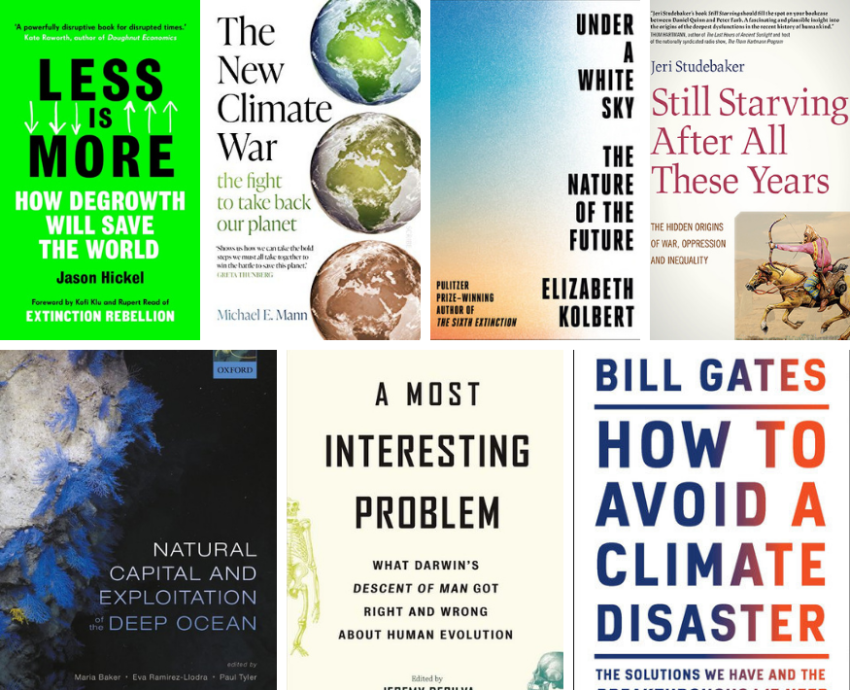
Climate and Capitalism editor Ian Angus introduces six new books that are worth reading — and one that isn’t.
* * *
Less is More: How Degrowth Will Save the World
By Jason Hickel
Windmill Books, 2020
Are ecosocialism and degrowth compatible, or contradictory, or some of both? Hickel’s book bases the degrowth argument firmly in an anti-capitalist framework, and the result is one of the best cases for degrowth we’ve seen.
I don’t agree with everything he says, but everyone who wants to understand this important radical current in environmentalism should read it.
The New Climate War: The Fight to Take Back Our Planet
By Michael E Mann
Public Affairs Books, 2021
Noted climate scientist Michael Mann shows how fossil fuel companies have waged a 30-year campaign to delay action on climate change, and offers his thoughts on battling the immensely powerful vested interests that are aligned in defense of the fossil fuel status quo.
Under a White Sky: The Nature of the Future
By Elizabeth Kolbert
Penguin Random House, 2021
Kolbert won the Pulitzer Prize for The Sixth Extinction. Her new book examines geoengineering — as she says, it is “about people trying to solve problems created by people trying to solve problems.” Informative and more than a little scary.
Still Starving After All These Years: The Hidden Origins of War, Oppression, and Inequality
By Jerry Studebaker
John Hunt, 2021
An archaeologist argues that war, oppression and inequality originated 6000 years ago in Mesopotamia, and now seem to be permanent features of human nature. “They are not. And if humanity continues to believe they are, we risk the annihilation of our own species.” His solution: erase starvation and starvation culture.
Natural Capital and Exploitation of the Deep Ocean
Maria Baker, Eva Ramirez-Llodra, Paul Tyler, Eds.
Oxford University Press, 2020
The deep ocean, the planet’s largest biome, holds a wealth of potential natural assets. In eleven focused essays, marine scientists examine geological and physical processes, ecology, biology and biogeography, and how they may be affected by exploitation, management and conservation.
A Most Interesting Problem: What Darwin’s Descent of Man Got Right and Wrong about Human Evolution
Jeremy M Desilva, editor
Princeton University Press, 2021
In 1871, in The Descent of Man, Charles Darwin attempted to explain human evolution. Some of his ideas have withstood more than a century of scrutiny while others have been decisively disproven. Twelve scholars and science communicators investigate what Darwin got right and wrong about the origin, history, and biological variation of humans. Fascinating reading about the development of science, and the cultural blindspots than can misdirect even the most brilliant scientists.
How to Avoid a Climate Disaster: The Solutions We Have and the Breakthroughs We Need
By Bill Gates
Penguin Random House, 2021
Here’s a surprise: a technology capitalist thinks that climate change can only be solved by more technology and more capitalism!
In his recent review, frequent C&C contributor Martin Empson says this book is valuable for “insights into how the capitalist ruling class thinks about climate change”, but “doesn’t even get to the heart of what that crisis is”. Money talks, so this book is getting lots of publicity, but it is not on my recommended reading list.
[Reprinted from Climate and Capitalism. Inclusion of a book does not imply endorsement.]
